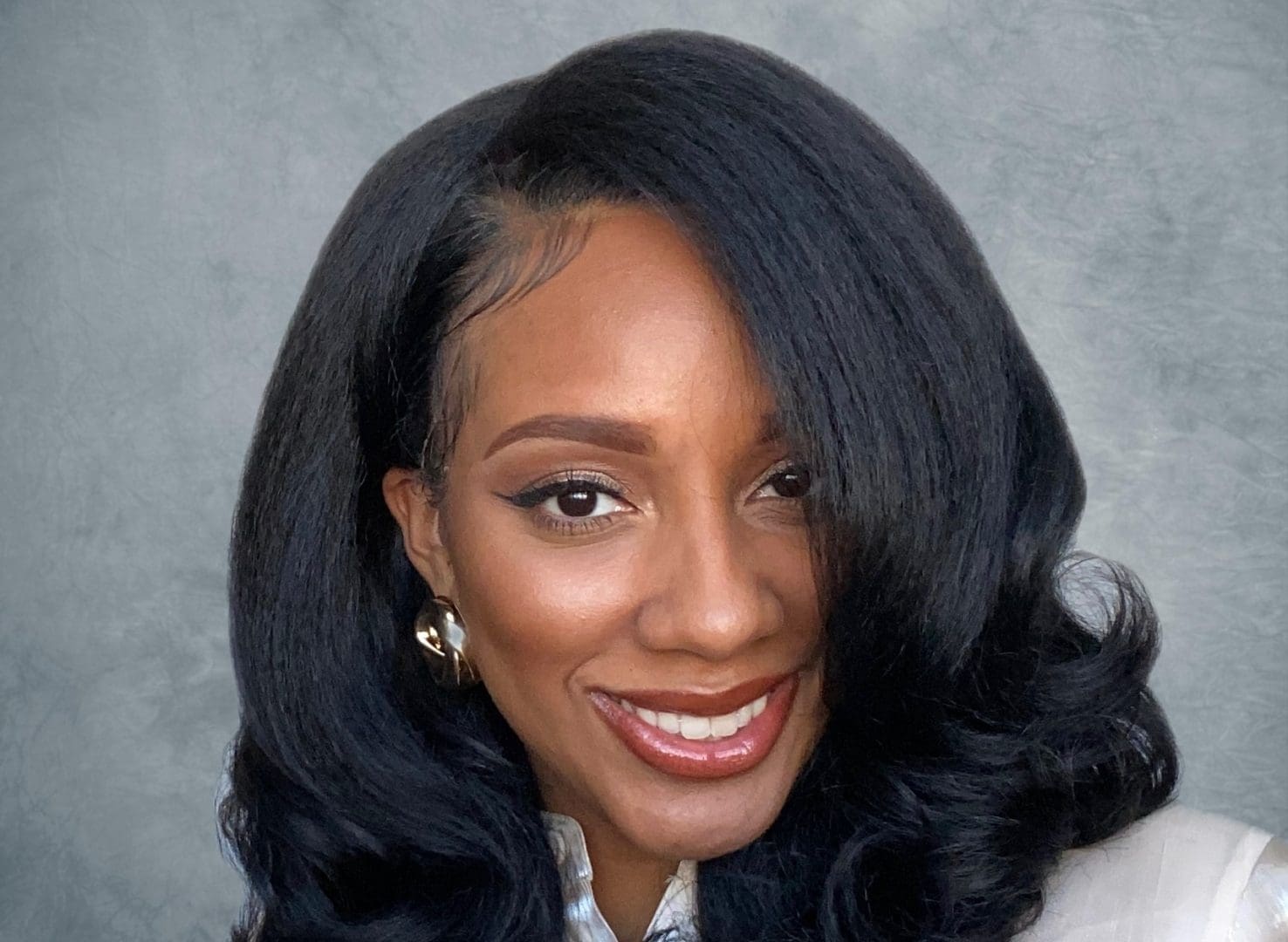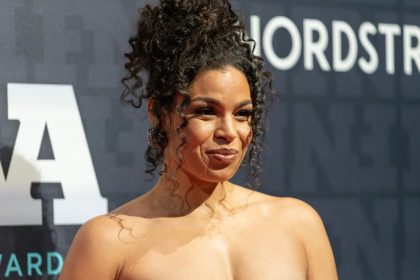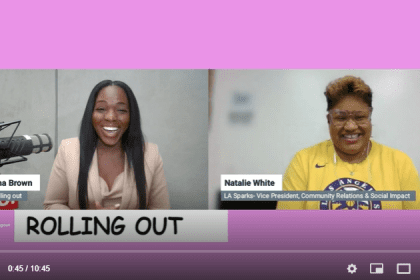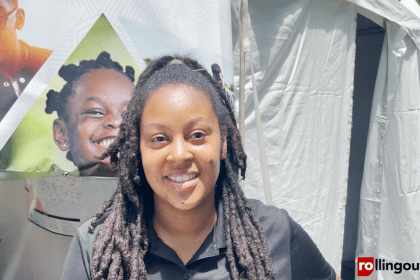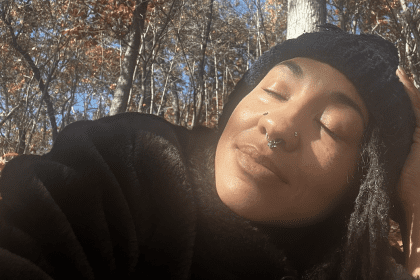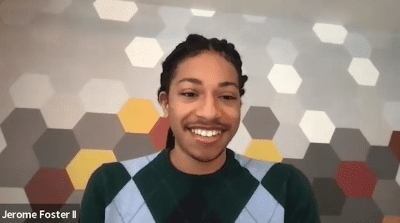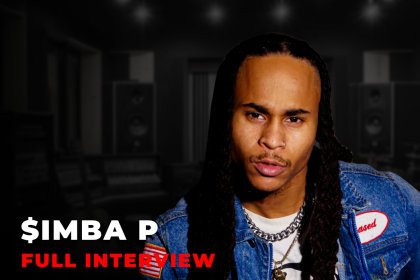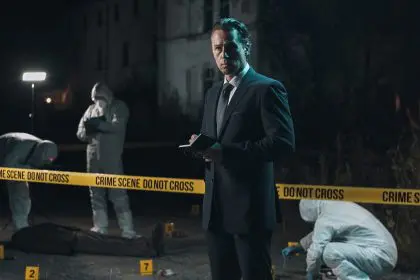Anna Norman is a member of Covanta’s legal department as its Employment Counsel. Prior to joining the Covanta team, she spent the entirety of her career as a litigation (trial) attorney: first, representing employees against companies, then, representing and advising companies on employee relations and issues. That said, this is her first job ever in corporate America!
Having advocated for both employer and employee interests on a broad range of legal matters, Anna found the Employment Counsel role at Covanta to be the perfect opportunity to be able to prevent and remedy employment issues that routinely arose during her time in litigation. She considers a core function of her job to be helping the Company operate efficiently while protecting and preserving employees’ civil rights.
Anna was born and raised in Detroit is an avid gym-goer, and sews her own clothes.
She took time out of her busy schedule to speak with rolling out and its accomplished publisher and CEO, Munson Steed. Here is their conversation.
Munson Steed: Hey, everybody! This is Munson Steed and welcome to a special moment. A rolling out special for Black History Month — big up to everybody in the community that celebrates every single day. It has to show up every single day. I am Munson Steed and I am joined by the phenomenal Anna Norman.
How are you? Happy Black History Month, day, year, moment and second.
Anna Norman: Happy Black History Month. Thank you for having me. I’m doing pretty good. Thanks for asking.
MS: Share with us — for those who don’t understand how important it is — but if you would just describe your title and role at Covanta.
AN: I’m the Employment Counsel. Essentially what that means is [that] I’m the person who handles anything that goes wrong with employees except [that] I don’t do worker’s compensation and I don’t do personal injury. So, I work in the realm of Title 7. So, race discrimination, age discrimination, gender, pregnancy, disability. I handle FMLA [Family and Medical Leave Act of 1993] matters or non-competes, and I regularly advise human resources.
MS: Super — I mean, that’s a beautiful thing. How long have you been there?
AN: I’ve been at Covanta — it’ll be a year in March. Feel like it’s gone by [quickly]. I’ve been having a good time.
MS: I love when you have a good time at work. That is it. It can actually mean it might be a career there?
AN: True — I really, I really do enjoy my job.
MS: Let’s talk about Black History Month. How do you integrate it into your personal life? And how do you let it shine at Covanta?
AN: Well, in my personal life, a few different ways. As I mentioned off-camera, when we were just chatting before now, I’m from Detroit, which is a pretty much majority-minority city and is mostly Black. One of the blackest cities in America. So, I grew up really with Black history and learning that even in school, high school. So, I felt like I had a really good knowledge base. So, when it comes around every year — and I mean throughout the year, but especially every year — I feel that it’s my obligation to learn more, share … [and] engage with students and other people who are looking up to me now that they think I’m older. [Laughs] So, I do that. Then, I also really make it a point to patronize or promote Black businesses on my social media platforms or just get people talking about things, even if there are resources that I can share with different community members.
In my professional life, my job, as I mentioned, is under Title 7 of the Civil Rights Act of 1964. So, prior to me working here, I was both a plaintiff’s counsel and defense counsel in litigation, which means that I sued companies on behalf of employees. I’ve also represented companies against employees. And that, I think … makes me really uniquely qualified to understand what the issues are. I see my role here as helping the business understand how to preserve people’s civil rights, especially, when race discrimination matters come up and as a Black woman. I’m able to come up with creative solutions, and it permeates all year, but especially during Black History Month, where we’re able to recognize the contributions and successes of Black people.
MS: Well, thanks for that. There, I was wondering why you kind of look like Kamala [Harris] a little bit. She’s an attorney. Clearly, we’ve got this whole idea for the young girl who might not be. She might be in Chester, Pennsylvania [or] might be in Tulsa, Oklahoma and hasn’t had an opportunity to meet you yet. And you think about her, and you think about the two other people and I didn’t mention her name … the Supreme Court Justice, who clearly has a law degree …
AN: Justice Jackson.
MS: Justice Jackson and our vice president, both of whom have a law degree. Why is it important for us to have Black lawyers? Just if you look at Black history.
AN: The simple answer is lawyers are the people who are interested in the community [and want] to protect people’s rights. That’s really the short answer. And, as we know, in this country … Black folks really didn’t even have rights up until relatively recently in American history. Then the rights that we did have were limited and curtailed and are still being limited and curtailed, like Voting Rights Act and things like that. So, the more representation we get, it’s [more] important for the representation to be able to understand the issues of the people that they serve. And frankly, sometimes everyone has blind spots. [However], when all the people that are representing me don’t look like me or don’t necessarily understand my issues, they really don’t have a context for that.
It becomes really important for somebody like me or somebody like former Justice Thurgood Marshall, or some of those other kinds of representatives in the community to be able to stand in line, to say I’m willing to take on — I don’t want to call it a burden — but I’m willing to take on the responsibilities that come with being a lawyer, that comes with being an advocate, and [that I will] put myself on the line to protect these other folks. And I think that Vice President Harris and Justice Jackson — who actually is the only public defender to ever serve on the Supreme Court — those types of people matter. And if you listen to the Supreme Court oral arguments, you hear the value of her perspective immediately, because she’s asking the questions that maybe other justices don’t consider because they’ve never been problems for those groups of folks.
MS: Thank you for that. So, showing up is a real thing. And so, what have you learned recently? Kind of about Black history [that piqued] your interest and gave you more inspiration. Obviously, to celebrate current living Black people and our ancestors.
AN: So, I learned this — what I’m going to tell you — maybe two years ago, which is really interesting, because I’ve been a practicing attorney for probably seven years now. I learned that the bar exam was originally designed to prevent African Americans from becoming attorneys — and I think that is a really fascinating thing. Particularly, because the history of legal education in this country primarily was premised on diploma privilege, meaning that if you had gone to a law school in whatever state [and] you graduated from the law school, you have automatic admission to practice law.
The bar exam, for people who might not know, is the license that you need to practice law. So, even if you graduate from law school, you have to take the licensure exam — which is the bar — in order to be able to practice in the state. Well, in the late 1800s to early 1900s, eugenics was starting to become popular. It was starting to permeate the mainstream, and southern states — particularly, South Carolina — started eliminating the diploma privilege from the requirements. So, they’re like, well, now, everyone has to take an exam to test your competency, even though you’ve been through three years of law school in the state — and we authorize and empower the state to educate our future lawyers. So, the first African American attorney — he first applied to, I believe, become an attorney in the state of Maine.
He didn’t get that. Went back to South Carolina [and] passed the bar. [The] first African American attorney — and also the first African American to hold a judicial position — and that was Macon Bolling Allen. I really love the law, right? So, this stuff when I see it, I’m, like, oh my God! Like, I can’t believe that was something I should know as a Black lawyer. I came across it on Twitter, and then I saw a bunch of publications about it. After I looked more into it, I thought, “Well, something that there are debates about whether the bar exam needs to exist, but it is not off-brand to me for America to have instituted this as a prevention-to-access mechanism.
MS: Sounds like you need to give Ava DuVernay a call.
AN: Listen! I’m sure she knows — and if you know her, that is a sharp lady. I love her.
MS: I do. I do know her. She is a friend and an associate so … Tell her you saw Munson, and she would know who Munson is.
AN: Ooooh, I’ll ask her on Twitter. She wrote me one time, so I will have to mention it.
MS: Yeah, she’s a sweetheart. When you think about your work — and you shared a little bit about it — [do] you know how important is it for us to work in these communities? And how important is your work for the communities that you work with at Covanta?
AN: Extremely extremely important. I think that … if you have more than 15 employees under Title 7 as a business, even if you’re a small business in some [states and their state laws say] two employees or more — you’re subjected to all these civil rights laws, right? The first thing is that employees should understand what their rights are. In my scope of work, I feel that that’s something that I really enjoy doing, which is part of the reason why I really enjoy my job. On the other side of it, the company should also understand what our civil rights are — and sometimes, having been on both sides of it in court. Sometimes the employer does not sufficiently understand the civil rights, or the employee doesn’t know that they have to use certain language for your complaint or your grievance [can] mean something different than what you experience. And it’s very hard to qualitatively write about or complain to your company about race discrimination, right? Because you’re like, whoa, I feel like I’m being treated differently than people, and here are all the examples. Most people don’t write like that, right? Most people are saying, “Hey, I just feel that something is happening to me,” and then you get to court, and the judge or the other side is, like, “Well, that’s not enough.”
So, for me, in my role, I think it’s important for me to educate folks on both sides of it, and that’s why I love my job is. Sometimes it’s just a matter of saying, like, I see what y’all are trying to do but that’s not right. Like we can’t do that. And sometimes they really don’t know that right; every HR person is not an attorney. They really don’t know. Which is why my role becomes increasingly important. To be able to make sure that we’re not doing things inappropriately, that we really have the employee as an employee but also as a human in mind when we are making certain decisions. And I see my role as less safeguarding some of the things that can go wrong and really being preventative as to issues. [Doing this is an] added benefit of protecting the company from liability, right? Like, you want to come to work and do a good job —and you don’t want to be bothered, and we want that for you — but if we’re not seeing eye to eye, then we can have a lot of unnecessary issues. I hope to resolve that kind of stuff.
Why Covanta believes sustainability is important
MS: Thank you for that. I [was speaking with a woman who] was the CEO of a YWCA. She said [that] she led with love and empathy, and that was her style. She was, like, “It’s not right or wrong. I don’t want to be a right-or-wrong leader. I really [come from] is that a loving way to treat the human? And do I have empathy so that my ears can hear what they’re trying to say?” And I thought that was such a moving moment in her leadership approach and style. So to hear that you’re conscious and can do that scale of justice and have somebody who isn’t tilted one way just cause you’re there, that’s a beautiful vision to share with our community. And we got to have that seated at the table; I think that that’s important.
Sustainability and the environment — talk to our community about 1) how important it is and 2) how important a young person like you is being in the business [that] others should consider?
AN: So, to answer your first question. Sustainability is super, super, super, super important. And I wish I had a more buttoned-up way to say that, but I really don’t know how else to convey how I feel. It’s not just a here-and-now thing; it’s a future for us to live in. That means, looking forward 10 years, 20 years, looking forward 50 years, looking forward a hundred years — and no matter what part of the future that you anticipate or don’t anticipate, either you or somebody you love is likely going to live in that future. Whether it be your kids, grandkids, relatives, loved ones or their families.
And I guess, to answer your second question, why should young people care … it will impact us in different ways that we can’t anticipate in the future. And that means, ultimately our working together with our neighbors to understand that this is a worldwide problem. I mean, it’s unique to our communities. But if you look at some of these news publications and … climate change reports and things like that, [climate change] impacts our communities the hardest, right? Like, depending on where we live or access to resources or how it will impact the resources that we do have access to. So all those things matter, and when things happen, they time and time again disproportionately impact our communities.
Young people, people of color, women, and other represented minorities, disabled people, etc. They hit us the hardest … it’s also uniquely in our interest to care because these things impact our communities differently than they might impact everybody else. So, sustainability is very important from [a] macro scale like climate change down to [a] micro scale like recycling — even [when] we do waste to energy materials, management, things like that.
MS: Cool! Well, ladies and gentlemen. You heard it first here from my dearest, what up doe sister, Anna Norman. Thank you so much. I’m so proud of you — all of Detroit is proud of you. We thank you, Covanta. We’re just proud of you. Happy Black History Month, day, year, second, and through eternity from all of you, and thank you for coming on to rolling out.
AN: Thank you for having me.

